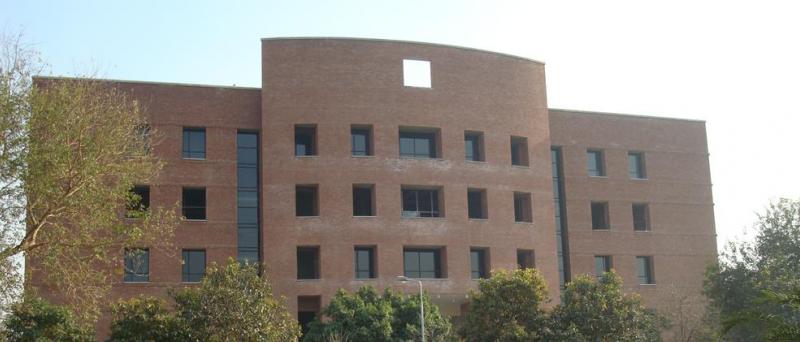
The Suleman Dawood School of Business (SDSB) is organising the following PhD Dissertation Defense:
Exogenous Shocks and the Process of Organisational Sensemaking: The Case of Punjab Irrigation Department, Pakistan
By Muhammad Azeem Ali Shah, Candidate PhD Management
Date: Monday, September 24, 2018
Time: 3:00 pm to 5:00 pm
Venue: SDSB Auditorium 105, First floor
Dissertation Defense Committee:
• Dr. Ghazal Mir Zulfiqar - Supervisor & Chair
• Dr. Muhammad Azfar Nisar – Co-Supervisor
• Dr. Adnan Zahid – Member SDSB
• Dr. Mohsin Bashir - Member SDSB
• Dr. Shafay Shamail - Member (LUMS)
• Dr. Ing. Usman Khalid Awan – External Examiner (International Center for Agricultural Research in the Dry Areas (ICARDA)
Members of the public are invited to attend the proceedings. Please contact Mr. Umar Amjad (umar.amjad@lums.edu.pk, 042- 35608283) to register. Advance notice is required to gain access to the campus.
Abstract
Exogenous shocks have been studied in organisation studies literature to investigate specific events that trigger sensemaking in organisations. The focus of the majority of this research is how these triggers create discontinuity in the organisational routines and how actors make sense of these events to restore order. However, this narrow focus ignores the impact of multiple intensities of exogenous shocks that trigger sensemaking across different levels in an organisation and the key role of enactment in organisational transformation and changes in internal organisational control.
To address these theoretical gaps, this dissertation focuses on a large public-sector organisation – Punjab Irrigation Department (PID), Pakistan – to empirically investigate the impact of multiple exogenous shocks of different magnitudes that triggered a process of sensemaking resulting in the organisational transformation with changes in internal organisational control. More specifically, this dissertation explores research questions related to distributed sensemaking across different hierarchical levels, enactment of sensemaking of various groups of actors, systematic differences in sensemaking across these groups of actors and the power asymmetries within these groups through an interpretive research methodology.
The research design consisted of three cases of exogenous shocks that were witnessed by the PID in the last two decades. For the first case, i.e. the 2010 flood, I conducted a pilot study for six months of the flood-affected districts in the province of Punjab. It was supplemented by in-depth interviews with officials from PID during the main study. The second case consisted of institutional reforms in PID for which I conducted a longitudinal study to understand how reforms have evolved over a period of last twenty years. The last case consisted of inclusion of external stakeholders in the maintenance and repair works in PID. I conducted interviews with PID staff and the external stakeholders to understand their role in the organisational transformation. I coded all the data of interviews in MAXQDA to conduct a qualitative thematic content analysis. I then analysed the main themes from the data using multiple theoretical perspectives to develop my findings.
My analysis shows the enactment of sensemaking of these exogenous shocks varied across different hierarchical levels in the PID. Actors at different hierarchical levels used the ambiguity and uncertainty of the situations to enhance their sphere of control in the organisation. The role of identity and systemic powers by virtue of their designation played a key role in the strategic action they engaged in to enact changes in the organisational routines. In doing so, this dissertation contributes to the institutional change/transformation research in the field of organisation studies by providing in-depth context-specific analysis of enacted sensemaking in a large public-sector organisation. Moreover, this research also adds valuable insights about how power asymmetries in organisations impact the process of institutional maintenance and change.









